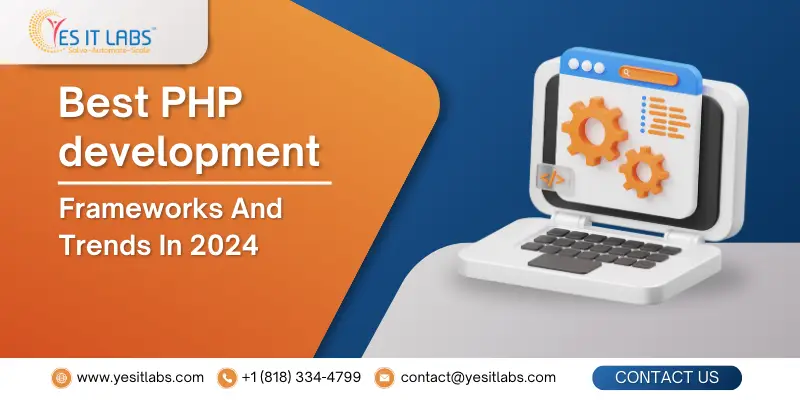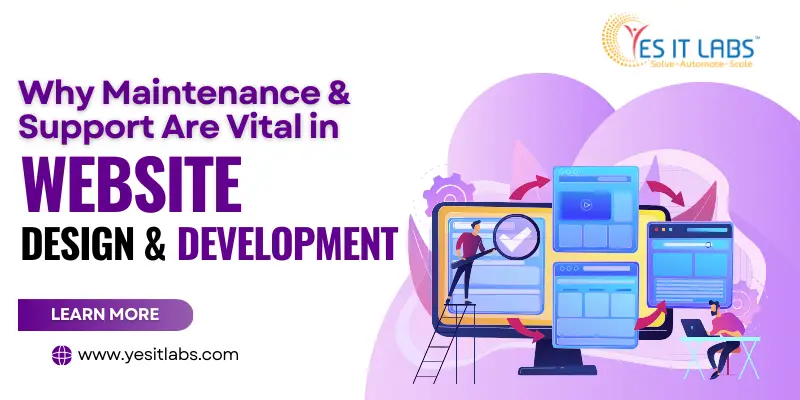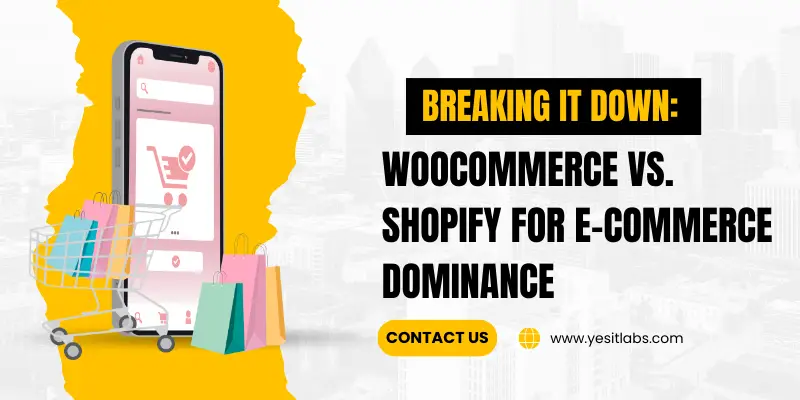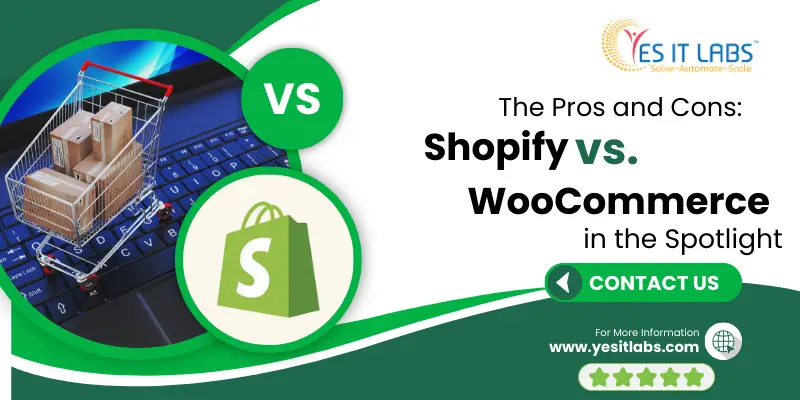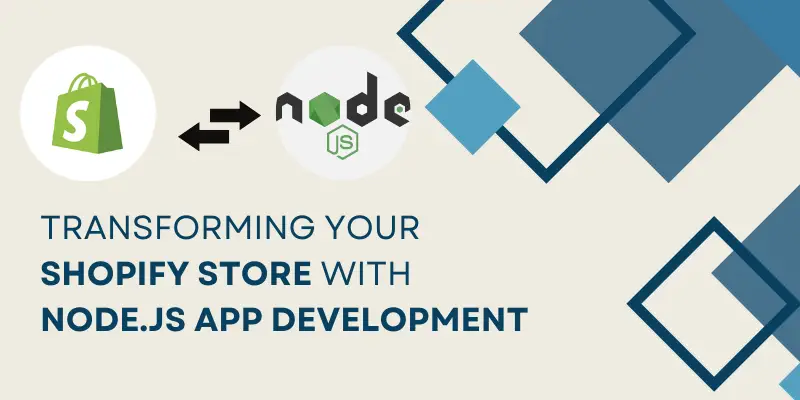
Transforming Your Shopify Store with Node.js App Development
Are you prepared to take your Shopify store to the next level? Buckle up because we’re about to embark on an exciting journey of revolutionizing your online presence with the magic of Node.js development services. If you’ve been searching for ways to enhance your Shopify store’s performance, user experience, and scalability, then you’re in the right place. Today, we’re diving deep into how Node.js can breathe new life into your e-commerce venture.
Why Node.js?
Before we dive into the nitty-gritty details, let’s address the burning question: why Node.js? Simply put, Node.js is a game-changer when it comes to web development. Its non-blocking, event-driven architecture makes it perfect for building fast and scalable applications. And when it comes to e-commerce platforms like Shopify, speed and scalability are paramount.
Enhancing Your Shopify Store
Now that we understand the power of Node.js, let’s explore how it can revolutionize your Shopify store.
1. Speed Optimization
In the world of e-commerce, every second counts. Slow loading times can drive potential customers away faster than you can say “add to cart.” With Node.js, you can optimize your Shopify store for speed like never before. Its asynchronous nature allows for lightning-fast processing of requests, resulting in significantly reduced load times. Say goodbye to sluggish performance and hello to happy customers who can browse your store with ease.
2. Real-Time Updates
One of the most exciting features of Node.js is its ability to facilitate real-time communication. Imagine being able to provide your customers with instant updates on product availability, price changes, or order statuses, all without them having to refresh the page. With Node.js, this becomes a reality. By implementing real-time features into your Shopify store, you can create a dynamic and engaging shopping experience that keeps customers coming back for more.
3. Scalability
As your Shopify store grows, so do the demands on your infrastructure. Traditional web servers can struggle to keep up with the increasing traffic and data processing requirements. However, Node.js is built for scalability. Its lightweight, event-driven architecture allows it to handle thousands of concurrent connections with ease. Whether you’re experiencing a sudden surge in traffic due to a flash sale or steadily increasing growth over time, Node.js can scale with your Shopify store every step of the way.
Implementing Node.js in Your Shopify Store
Now that you’re sold on the benefits of Node.js, you might be wondering how to integrate it into your Shopify store. Thankfully, you have a variety of options at your disposal:
1. Custom App Development
If you’re looking for a tailor-made solution that perfectly fits your unique business needs, custom app development is the way to go. By partnering with a Shopify development services provider that specializes in Node.js, you can build custom applications and integrations that take your store to new heights. Whether you need a real-time inventory management system, a personalized recommendation engine, or anything in between, the possibilities are endless with custom Node.js development.
2. Third-Party Integrations
Alternatively, you can leverage existing Node.js libraries and frameworks to integrate third-party services and tools into your Shopify store. From payment gateways and shipping providers to analytics platforms and marketing automation tools, there’s a wide range of integrations available that can help streamline your e-commerce operations and enhance the customer experience.
3. Shopify App Store
Finally, don’t forget to explore the Shopify App Store for pre-built Node.js apps and plugins that can add new functionality to your store with minimal effort. Whether you’re looking to optimize SEO, improve email marketing, or enhance product customization options, there’s a wealth of options available that can help you achieve your goals without having to start from scratch.
Getting Started with Node.js Development for Shopify
Now that you’re sold on the idea of leveraging Node.js for your Shopify store, you might be wondering how to get started. Consider these steps as your roadmap to success:
- Define Your Requirements: Before diving into development, clearly outline your objectives, target audience, and desired features for the Node.js app. This will serve as a roadmap for the development process.
- Find a Reliable Development Partner: Look for a reputable development agency or freelancer with expertise in both Shopify and Node.js development services. Check their portfolio, client testimonials, and industry experience to ensure they’re the right fit for your project.
- Collaborate on Design and Development: Work closely with your chosen development partner to brainstorm ideas, create wireframes, and develop prototypes. Be sure to communicate your vision and expectations clearly to ensure the final product aligns with your goals.
- Test and Iterate: Once the Node.js app is developed, conduct thorough testing to identify any bugs or usability issues. Gather feedback from stakeholders and end-users, and iterate on the design and functionality as needed to ensure a seamless user experience.
- Launch and Monitor: Finally, launch your Node.js app on the Shopify App Store or integrate it directly into your store. Monitor its performance, gather analytics data, and solicit feedback from users to continuously improve and optimize the app over time.
Conclusion
Node.js has the power to revolutionize your Shopify store in ways you never thought possible. From speeding up performance and enabling real-time updates to ensuring scalability and flexibility, the benefits of Node.js development are clear. Whether you choose to build custom applications, integrate third-party tools, or leverage existing solutions from the Shopify App Store, now is the time to unlock the full potential of your e-commerce venture with Node.js. So what are you waiting for? It’s time to take your Shopify store to the next level.
Tags: Best Shopify development company, Node.js Development, Node.js Development Company, Node.js development services, Shopify App Development, Shopify App Store, Shopify development services